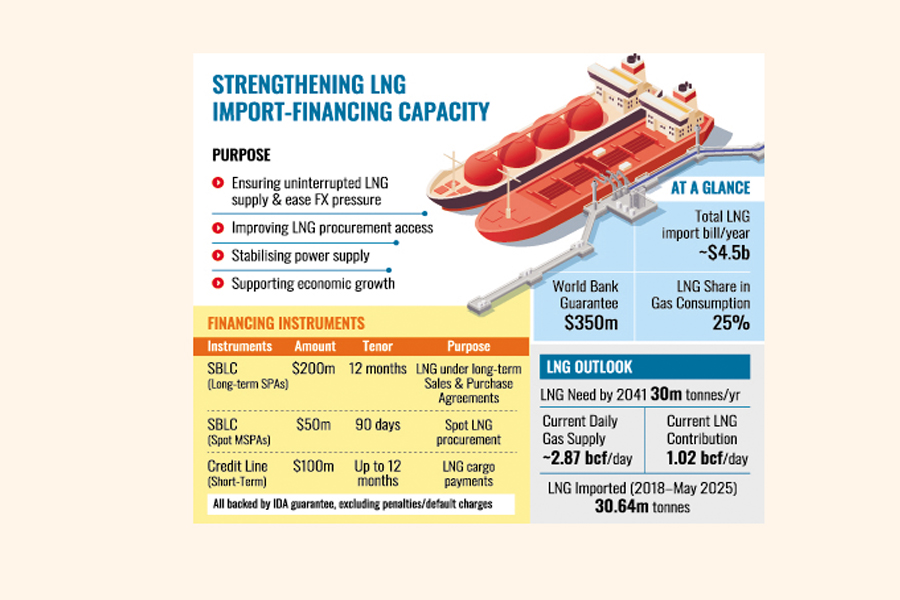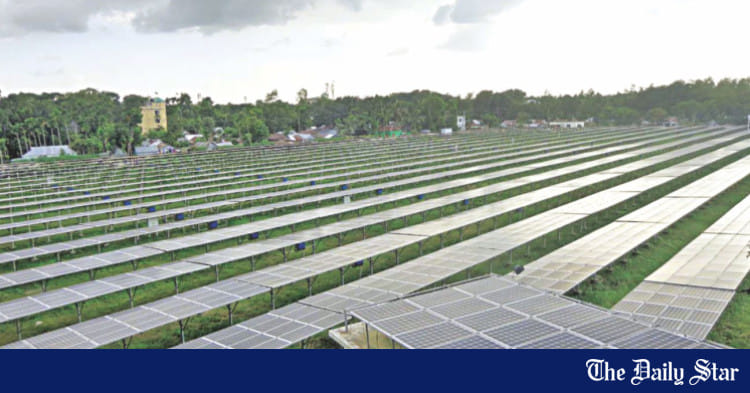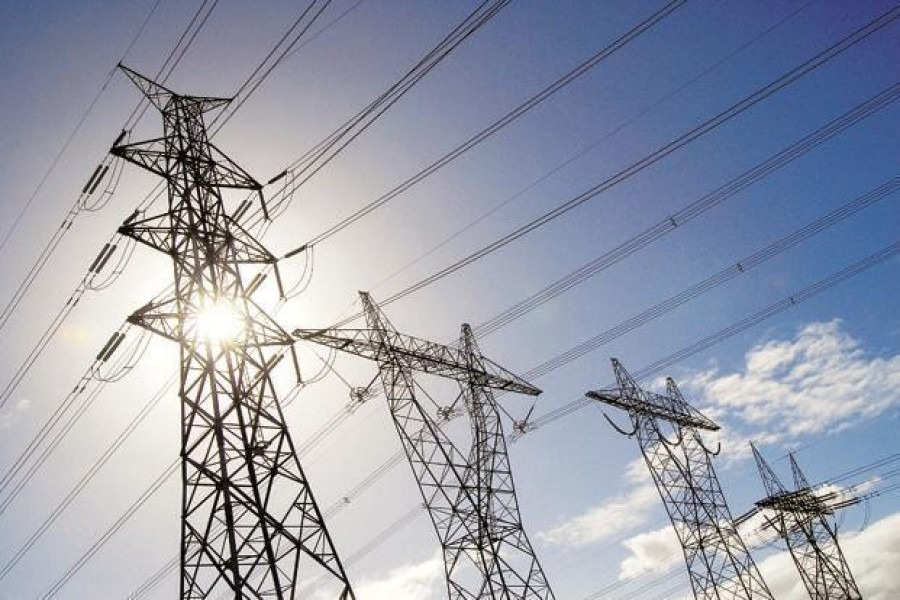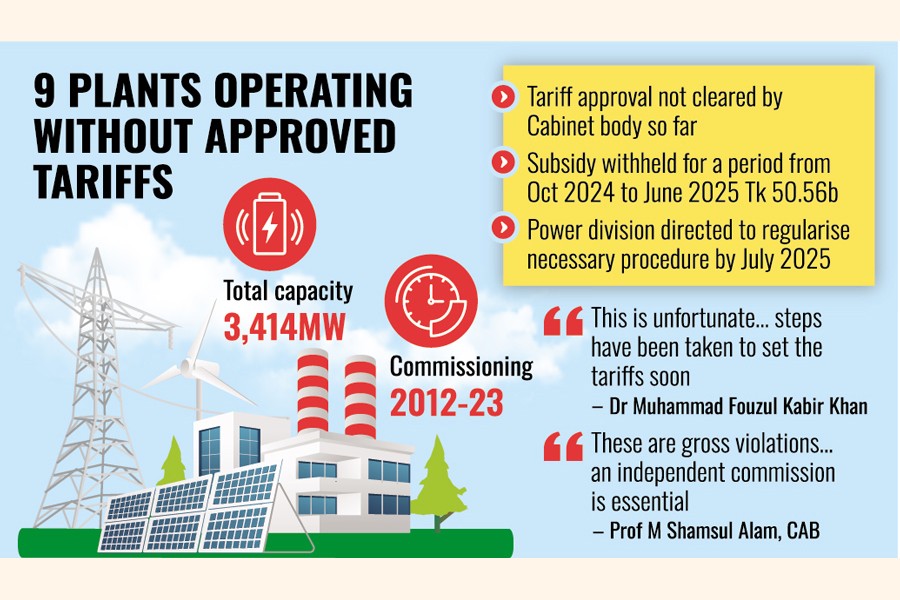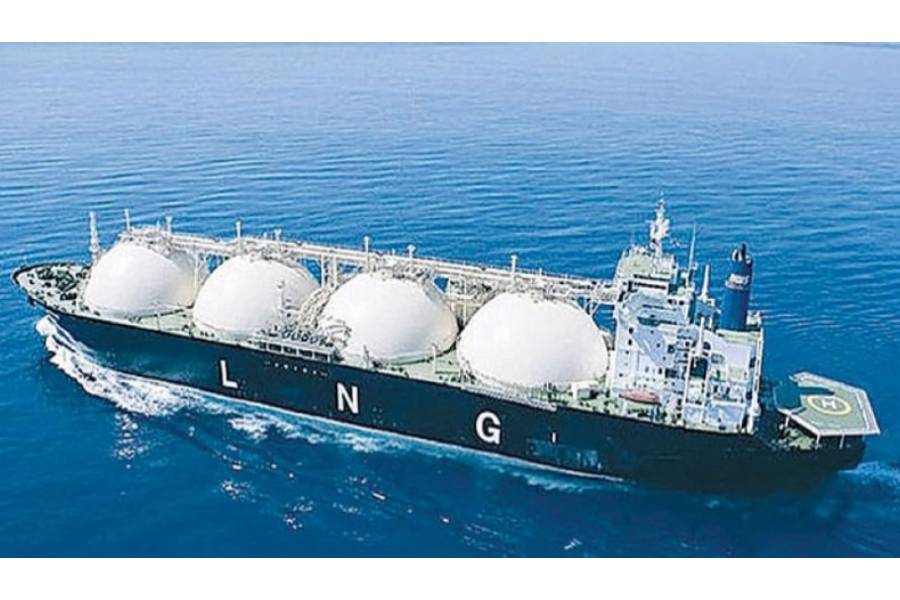Saif
Senior Member
- Messages
- 14,676
- Reaction score
- 7,646
- Origin

- Residence

- Axis Group

- Copy to clipboard
- Thread starter
- #441

Govt's budget and policy directions fall short of energy transition expectations
The interim government appears to be drifting from its political pledge to achieve the 'Three Zeros'--zero poverty, zero emissions, and zero unemployment--in the national budget for FY2025-26, the Centre for Policy Dialogue (CPD) said on Thursday. Speaking at a dialogue, held in Dhaka, the CPD ana
Govt's budget and policy directions fall short of energy transition expectations
Speakers at CPD dialogue call for ensuing uninterrupted power supply, future energy security
FE REPORT
Published :
Jun 27, 2025 01:02
Updated :
Jun 27, 2025 01:02

The interim government appears to be drifting from its political pledge to achieve the 'Three Zeros'--zero poverty, zero emissions, and zero unemployment--in the national budget for FY2025-26, the Centre for Policy Dialogue (CPD) said on Thursday.
Speaking at a dialogue, held in Dhaka, the CPD analysts expressed their concerns that allocations and policy directions in the power and energy sector fall short of aligning with the government's stated commitment to energy-transition and climate goals.
Speakers at the dialogue also called for stronger policy coherence, transparent planning, and a clear roadmap to support the country's energy transition goals and industrial sustainability.
At the event titled 'Power and Energy Sector in the National Budget for FY2025-26: Reflections on the Priorities for Energy Transition', the CPD shared data showing that the Bangladesh Power Development Board (BPDB) remains a 'heavily loss-making' entity.
The state-owned BPDB requires a staggering Tk370 billion in subsidies in FY2025-26, which accounts for 41 per cent of the national subsidy allocations, it mentioned.
In contrast, the Bangladesh Petroleum Corporation (BPC), which made a profit of Tk 20.50 billion in FY2024-25, is expected to see a profit shrink to Tk 6.15 billion in the upcoming fiscal.
According to the CDP, the amount of subsidies on import of liquefied natural gas (LNG) surged to Tk 90 billion, Tk 60 billion up from the previous year.
CPD's Research Director Dr Khondaker Golam Moazzem moderated the dialogue, and its Senior Research Associate Helen Mashiyat Preoty delivered the keynote presentation at the programme.
The presentation stated that Tk 225.20 billion has been allocated for the Ministry of Power Energy and Mineral Resources (MoPEMR) in the FY2025-26, which is 0.8 per cent lower than that of the previous year.
The share of such allocation in the total national budget also fell to 2.9 per cent, down from 3.1 per cent in FY2024-25, it said, mentioning development expenditures declined notably while operational costs increased.
The CPD flagged several worrying trends, including stagnation in renewable energy initiatives and inefficient fossil fuel dependency.
Although no new fossil fuel-based generation projects were launched, overall capacity continues to rise, even though the actual electricity supply remained inadequate.
On the renewable front, 37 Letters of Intent for solar power projects were cancelled, and only three public projects with a combined capacity of 108 MW remain in the pipeline, according to the presentation.
The dialogue also underscored the need for a growing disconnect between fiscal actions and political ambitions, citing delays in revising strategic documents such as the Integrated Energy and Power Master Plan (IEPMP), the Perspective Plan, and the Mujib Climate Prosperity Plan (MCPP).
As a result, the government's 'Three Zeros' goal now risks slipping into what CPD dubbed '2.5 Zeros'.
Energy expert Professor Dr M Shamsul Alam, Adviser to the Consumers Association of Bangladesh (CAB), criticised the continued rise in fuel prices despite the subsidy claims.
"The government says it is enhancing energy security, but the situation remains unchanged," he said.
He also alleged that the country's increased dependence on fuel import, which he termed a legacy of the previous government's 'looting', is continuing under the current administration without meaningful corrective measures.
Director of the BGMEA Mr Faisal Samad, urged the CPD to assess the impact of power disruptions on industry productivity and costs.
"We need to engage with the Power and Energy Adviser and the Chief Adviser to devise a strategic action plan for ensuring smooth industrial operations at least until the upcoming election," he said.
He also stressed the need for a short-term resolution within the next 30 to 45 days.
Echoing similar concerns, Director of BTMA Engr. Razeeb Haider raised his concern over the country's growing energy vulnerability.
"We are overly dependent on gas from Bibiyana. What will happen if it underperforms? There are no clear answers on offshore gas imports or the transmission of gas from Bhola to Dhaka," he questioned.
The national budget lacks any clarity to this effect, he lamented.
Energy analyst Mr Monower Mostafa said the allocations for power and energy sector should have better reflected the 'Three Zeros--particularly the goal of zero carbon emissions.
"This sector is the largest emitter, yet no tangible steps were visible in the budget to engage manufacturers or reduce the carbon footprint," he said.
Mr Md. Akhter Hossain Apurbo, Vice-President of BKMEA highlighted the plight of the ready-made garment (RMG) sector due to energy supply disruptions.
"Despite paying high prices for gas and electricity, we are facing frequent outages that disrupt fabric production in Savar, Gazipur, and Narayanganj. We urge the government to ensure uninterrupted supply at a reasonable cost," he said.
Speakers at CPD dialogue call for ensuing uninterrupted power supply, future energy security
FE REPORT
Published :
Jun 27, 2025 01:02
Updated :
Jun 27, 2025 01:02
The interim government appears to be drifting from its political pledge to achieve the 'Three Zeros'--zero poverty, zero emissions, and zero unemployment--in the national budget for FY2025-26, the Centre for Policy Dialogue (CPD) said on Thursday.
Speaking at a dialogue, held in Dhaka, the CPD analysts expressed their concerns that allocations and policy directions in the power and energy sector fall short of aligning with the government's stated commitment to energy-transition and climate goals.
Speakers at the dialogue also called for stronger policy coherence, transparent planning, and a clear roadmap to support the country's energy transition goals and industrial sustainability.
At the event titled 'Power and Energy Sector in the National Budget for FY2025-26: Reflections on the Priorities for Energy Transition', the CPD shared data showing that the Bangladesh Power Development Board (BPDB) remains a 'heavily loss-making' entity.
The state-owned BPDB requires a staggering Tk370 billion in subsidies in FY2025-26, which accounts for 41 per cent of the national subsidy allocations, it mentioned.
In contrast, the Bangladesh Petroleum Corporation (BPC), which made a profit of Tk 20.50 billion in FY2024-25, is expected to see a profit shrink to Tk 6.15 billion in the upcoming fiscal.
According to the CDP, the amount of subsidies on import of liquefied natural gas (LNG) surged to Tk 90 billion, Tk 60 billion up from the previous year.
CPD's Research Director Dr Khondaker Golam Moazzem moderated the dialogue, and its Senior Research Associate Helen Mashiyat Preoty delivered the keynote presentation at the programme.
The presentation stated that Tk 225.20 billion has been allocated for the Ministry of Power Energy and Mineral Resources (MoPEMR) in the FY2025-26, which is 0.8 per cent lower than that of the previous year.
The share of such allocation in the total national budget also fell to 2.9 per cent, down from 3.1 per cent in FY2024-25, it said, mentioning development expenditures declined notably while operational costs increased.
The CPD flagged several worrying trends, including stagnation in renewable energy initiatives and inefficient fossil fuel dependency.
Although no new fossil fuel-based generation projects were launched, overall capacity continues to rise, even though the actual electricity supply remained inadequate.
On the renewable front, 37 Letters of Intent for solar power projects were cancelled, and only three public projects with a combined capacity of 108 MW remain in the pipeline, according to the presentation.
The dialogue also underscored the need for a growing disconnect between fiscal actions and political ambitions, citing delays in revising strategic documents such as the Integrated Energy and Power Master Plan (IEPMP), the Perspective Plan, and the Mujib Climate Prosperity Plan (MCPP).
As a result, the government's 'Three Zeros' goal now risks slipping into what CPD dubbed '2.5 Zeros'.
Energy expert Professor Dr M Shamsul Alam, Adviser to the Consumers Association of Bangladesh (CAB), criticised the continued rise in fuel prices despite the subsidy claims.
"The government says it is enhancing energy security, but the situation remains unchanged," he said.
He also alleged that the country's increased dependence on fuel import, which he termed a legacy of the previous government's 'looting', is continuing under the current administration without meaningful corrective measures.
Director of the BGMEA Mr Faisal Samad, urged the CPD to assess the impact of power disruptions on industry productivity and costs.
"We need to engage with the Power and Energy Adviser and the Chief Adviser to devise a strategic action plan for ensuring smooth industrial operations at least until the upcoming election," he said.
He also stressed the need for a short-term resolution within the next 30 to 45 days.
Echoing similar concerns, Director of BTMA Engr. Razeeb Haider raised his concern over the country's growing energy vulnerability.
"We are overly dependent on gas from Bibiyana. What will happen if it underperforms? There are no clear answers on offshore gas imports or the transmission of gas from Bhola to Dhaka," he questioned.
The national budget lacks any clarity to this effect, he lamented.
Energy analyst Mr Monower Mostafa said the allocations for power and energy sector should have better reflected the 'Three Zeros--particularly the goal of zero carbon emissions.
"This sector is the largest emitter, yet no tangible steps were visible in the budget to engage manufacturers or reduce the carbon footprint," he said.
Mr Md. Akhter Hossain Apurbo, Vice-President of BKMEA highlighted the plight of the ready-made garment (RMG) sector due to energy supply disruptions.
"Despite paying high prices for gas and electricity, we are facing frequent outages that disrupt fabric production in Savar, Gazipur, and Narayanganj. We urge the government to ensure uninterrupted supply at a reasonable cost," he said.













